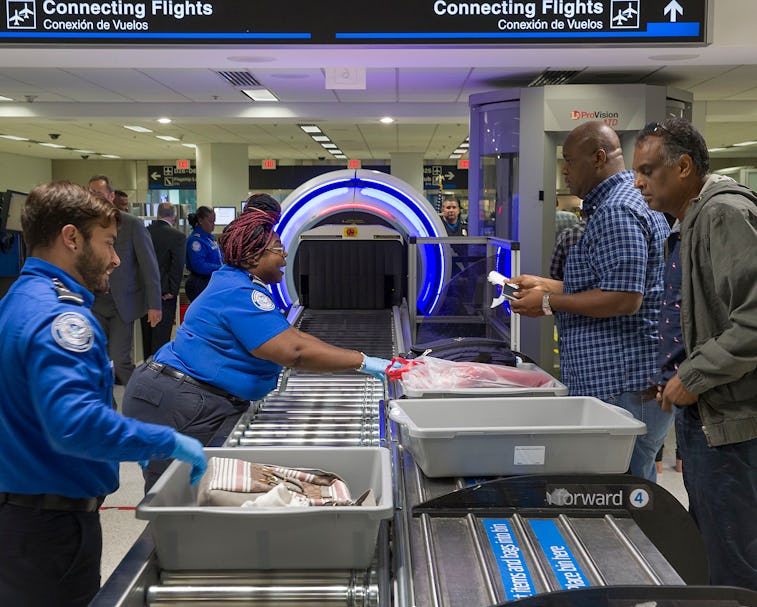Culture
The ACLU is suing the Department of Homeland Security over its secretive use of facial recognition software
Hopefully it brings some much-needed transparency around the issue.

The ACLU is suing U.S. Customs and Border Patrol, the Department of Homeland Security, the Transportation Security Administration (TSA), and Immigration and Customs Enforcement (ICE) over the secretive usage of facial recognition technology. The lawsuit focuses mostly on the lack of transparency in how facial surveillance tech has been implemented as a form of tracking travelers in airports.
The ACLU’s lawsuit will bring some much-needed attention to the shady uses of facial recognition software, which is expanding more quickly than we can keep up with. But for lasting change we’ll need more than just a single lawsuit — the U.S. is in dire need of comprehensive legal regulations around facial recognition technology.
Almost nothing here is public knowledge — Facial recognition software is actively being used in airports and other transportation centers to identify and track travelers, but the organizations pulling the strings have not been open about their usage. Because facial recognition software can operate via normal-looking cameras, its use is almost undetectable. The average person walking through an airport would have no idea their face is being scanned and cataloged.
It’s kind of an open secret now that the TSA and Border Patrol are using facial recognition for racial profiling. But these agencies have repeatedly denied the ACLU’s requests for information about how the software is being used. That’s why it’s taken matters further with the lawsuit: in the hopes of increased transparency and accountability for those in charge.
We’ll need to go further — This lawsuit is a step in the right direction toward making the government’s use of facial recognition software more transparent. But the government isn’t the only organization making waves in this market: Clearview AI, a private company, is selling software that matches faces to a massive internet-scraping database.
The ACLU’s lawsuit is limited in that it only covers some government agencies, not private companies. The U.S. is sorely in need of regulations to monitor the use of facial recognition software across the board. Until then, this problem is going to worse before it gets better.
We can only hope the ACLU’s lawsuit is successful in bringing more transparency to the ways government agencies are using facial recognition software. And, on a broader scale, we’ll need to advocate for the adoption of rigorous policies for the use facial recognition software, or it’s sure to be used for even more nefarious purposes in the future.